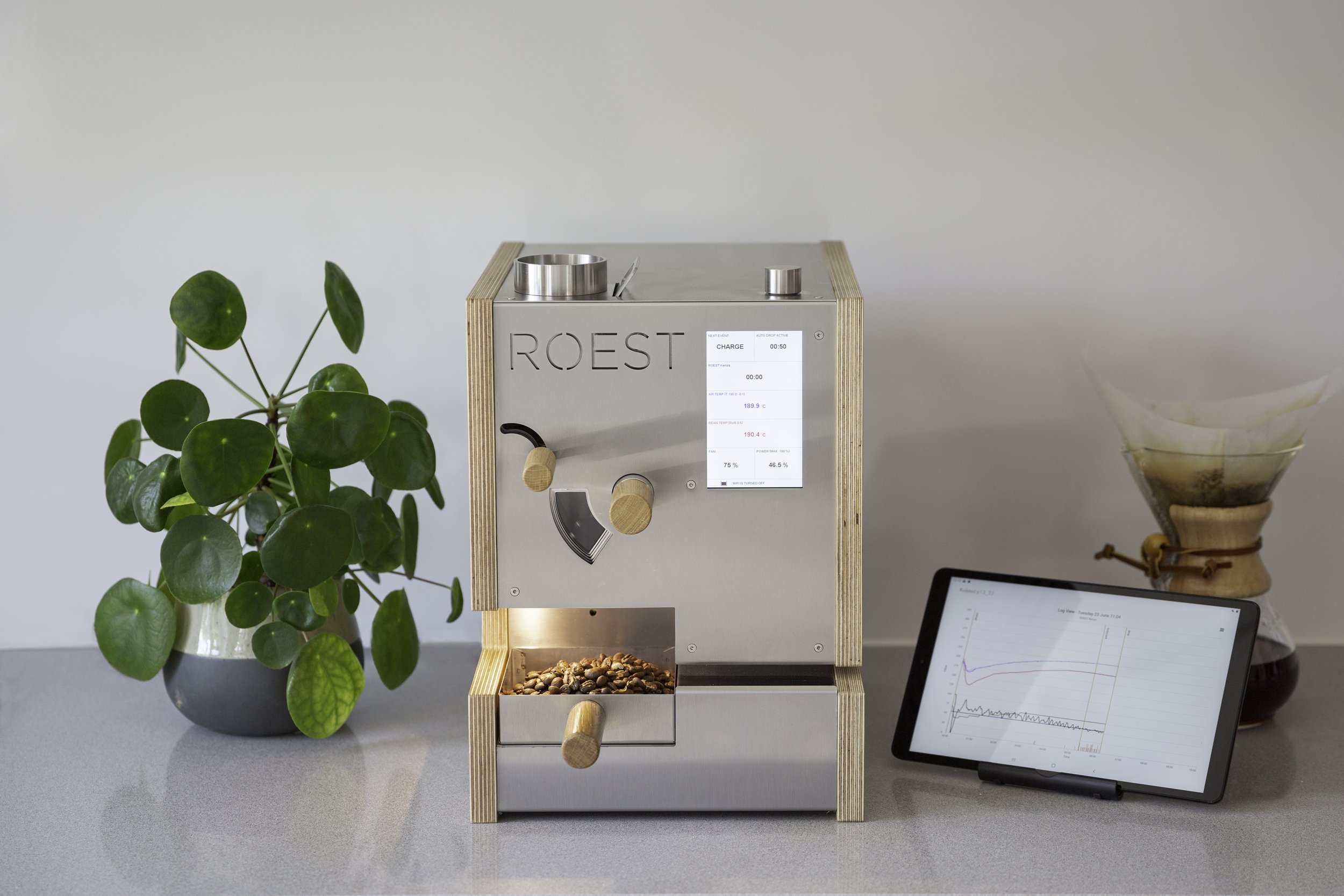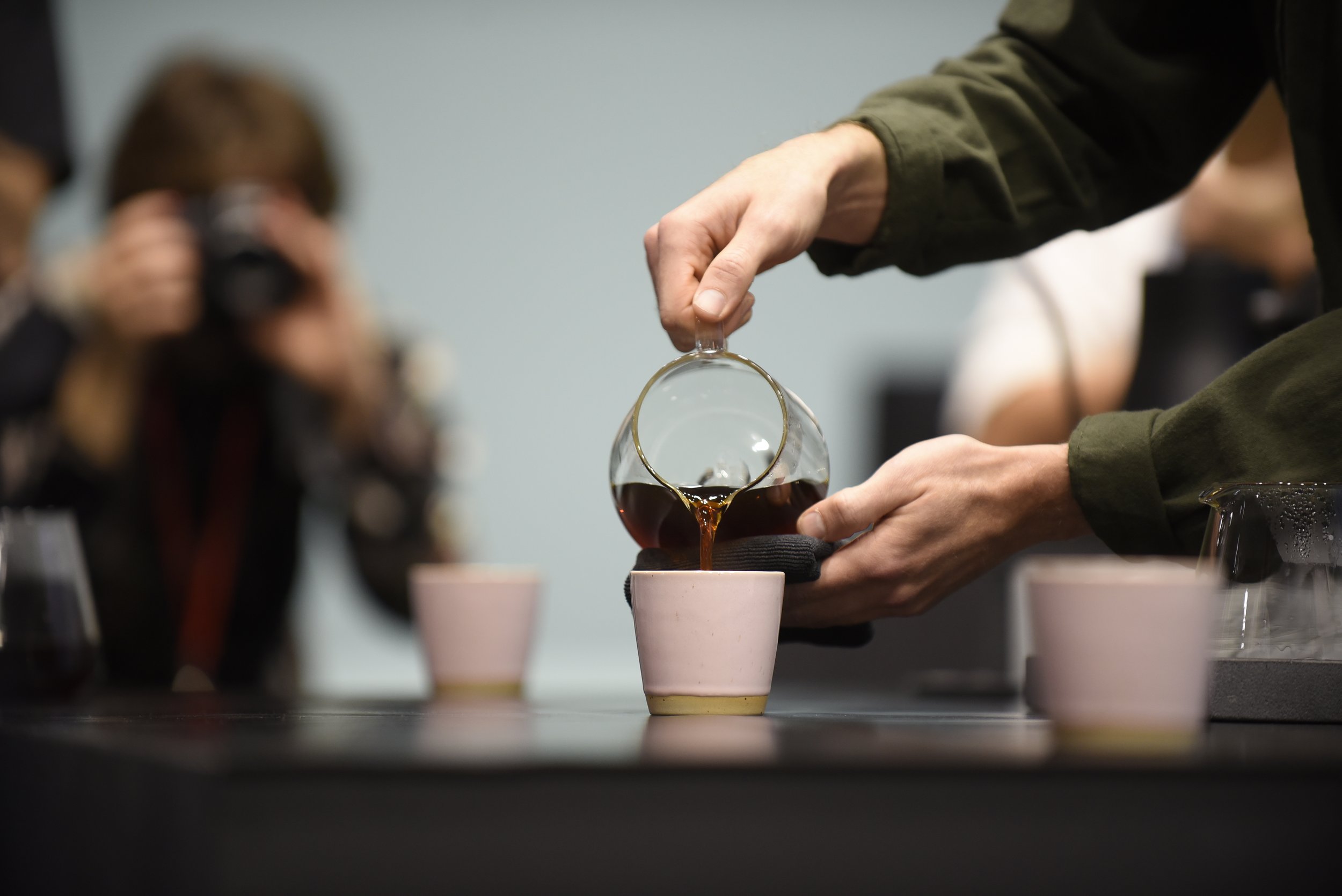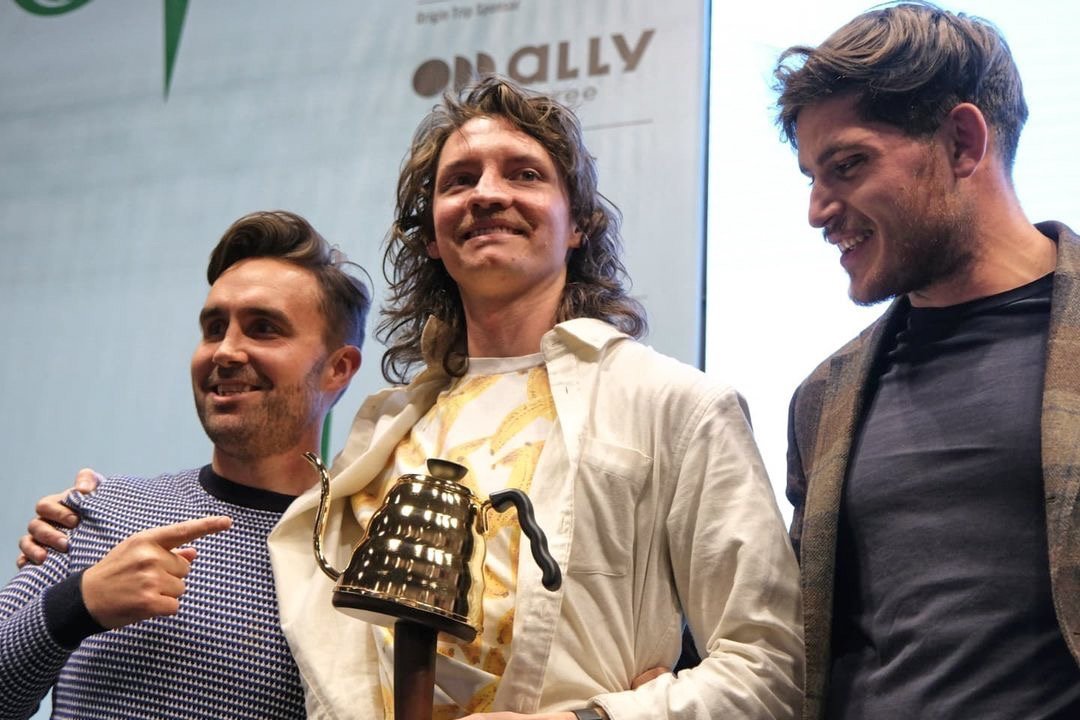How Matt Winton prepared his winning coffee at the World Brewers Cup
Matt Winton earned the title of 2021 World Brewers Cup Champion with his exceptional blend of Catucai and Eugenioides.
The Australian barista who now lives in Zurich, has previously won the Swiss Brewers Cup Championship and the Swedish Barista Championship - twice! After the World Stage in 2021, he could now add another title to the list.
After months of practice and preparations together with his team, they achieved a final blend that took the World Stage by storm. Their competition coffee consisted of a rare species called Eugenioides, which turned out to be a talking point of the show used by no less than three National Champions. This parent varietal of Arabica, noted for its intense sweetness and almost no perceived bitterness, was blended together with Catucai.
We spoke to Matt about his competition coffee: how it was prepared, the roasting process and blending, use of Eugenioides and the importance of water.
A wonderful performance and approach by Matt. Photo: Specialty PaL.
How did you start creating this coffee blend?
When I was looking at the blend, I looked at how each part of the blend fit in. I thought of it like in a musical way - we had the base which was this heavy body sweetness, not too much acidity, or in the Eugenioides’ case, no acidity, which provided the structure of the blend. Then we add on top whatever else was missing. Essentially, you could fill out the rest of the cup with the high notes - and that could be anything.
We chose the Catucai because it was so unique on its own. It has this strange herbal like taste of a very high quality. Reminding me of a verbena tea, rosemary or lemongrass. The cup was also really minty and had very light bright flavors. The acidities in that cup were next level - sparkling, vibrant and complex.
“The Eugenioides roasted with the ROEST ended up being mostly very fruity. We didn’t find that in some other roasters’ expressions of the coffee which is really interesting. ”
How was it like roasting these unique coffees?
Surprisingly, both of those coffees roasted really easily. We roasted the Catucai to have as much expressive acidity as possible. It was like - forget body in that coffee, just go for all of the high notes. We would roast the Catucai to have all of this top end of the brew, leaving the rest of that space to be filled by the Eugenioides.
We actually ended up using a few different roast profiles of Eugenioides to give different characters to the coffee, and some different lots of the Eugenioides as well. It wasn't as straightforward as just having Eugenioides and Catucai, but by blending different roast profiles - some that had more flavor intensity, some that had less flavor intensity and some that were more funky. It created this really complex synergy in the cup.
The Eugenioides roasted with the ROEST ended up being mostly very fruity. We didn't find that in some other roasters’ expressions of the coffee which is really interesting. So I guess it might also be the way that I roast, giving a lot of energy and then sort of letting it taper off quite quickly. It was very interesting to see the inherent taste differences roasted in a roaster.
The blend of Catucai and Eugenioides was roasted on the ROEST Sample Roaster.
Any tips on how to create a coffee blend? And how did you blend yours?
The amount of times where I've had exceptional blends, I just threw them together - a bit of this, bit of that, ground at the same setting, and brewed.
It's about throwing it together and seeing what happens. Surprisingly, I had to use more Eugenioides to make the Catucai shine. The sweetness of the Eugenioides got to carry the other flavors more. It's not always straightforward but more of a trial and error. It was a good learning experience for me.
Do you think we are going to see more Eugenioides on the World Stage from now on?
I’m sure we will. When the top three baristas use Eugenioides it sets a precedence that it's good. Even if you don't like it you have to value it, because it scored so highly. Personally, I don't like the taste of Eugenioides that much as a brew, but I think it's incredible to blend with. It can provide this amazing base - anything you add on top just shines. So it's really cool and almost any coffee works with it in a blend. You take anything you want - it just makes it better.
In action, first round of the WBrC. Photo: Specialty PaL.
Why is water so important in coffee? How can it influence the flavors or attributes?
Water is everything - it's 98.6% of this brew. If you haven't tried different waters like tap water, bottled water or filtered water - do it! You'll see there is a huge difference, especially if you have a bad tap water. Basically, the water itself can be huge in terms of the impact on not only the extraction, but the taste of the water.
The water that I had for the world stage was just yummy. It had this sweetness and crispy finish. We created six different waters in total. I brewed three V60s following the same recipes with a different water in each brew. The result was super interesting even though the differences in the minerals and concentration wasn't significant. We tested different types of magnesium, calcium and bicarb.
The other base water that we ended up using was the Lauretana water. It's a very low PPM water from Italy that sits at around 14 PPM. We tested it with the blend and the difference was huge. It was either a delicious cup or a disgusting cup.
Even on the day of the competition, we brewed the blend to see how it tastes and the water had “died”. It was just flat and I couldn't use it. So even the water being 24 hours old just didn't work. We had to re-make it that morning. It was really crazy.
Was it your best cup of coffee that you've ever had?
It's so hard to think about the best cup of coffee. It was probably the best cup of coffee I’ve ever served. All three of those cups on that finals day were the next level. It was like a jasmine syrup in the end, so sweet, floral - we'd never had these strong notes of jasmine before.
Yeah, it was probably the best cup of coffee I’ve ever served.
Matt Winton together with his teammates, Sam Corra and Tom Balerin. Photo: Specialty PaL.
A big thanks to Matt. Your experience and process inspires us! Well done and good luck on your next adventures - we’ll be rooting for you as always.
Read more about why he decided to roast his winning coffee on ROEST:




